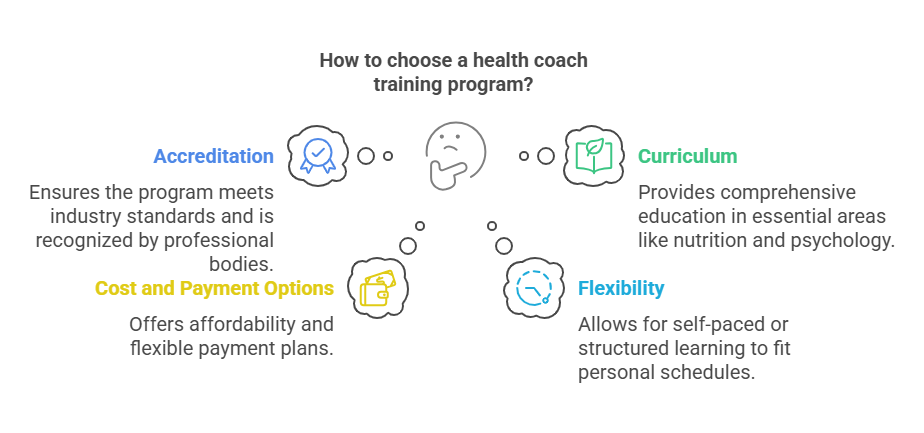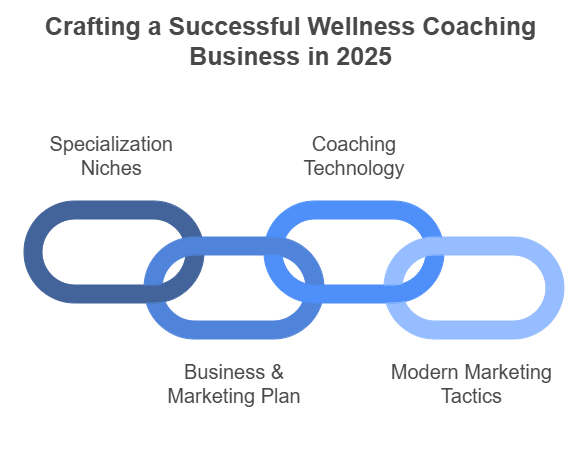Ready to Become a Certified Health Coach? Here's How to Get Started
Starting your health coach training journey in 2025 can be life-changing—and not just for you. As a health coach, you’ll guide clients toward healthier habits, improved nutrition, and sustainable wellness strategies. Whether you're making a career shift or enhancing your current role in fitness or healthcare, ANHCO is here to support your growth every step of the way.
Understanding the Role of a Certified Health Coach
A certified health coach is a wellness professional who empowers individuals to take control of their health through strategic behavior change. Unlike medical practitioners, health coaches don’t diagnose or treat—they educate, motivate, and coach clients through areas like:
Nutrition and mindful eating
Exercise and movement routines
Sleep hygiene
Stress management techniques
Lifestyle optimization
Health coaching complements the work of dietitians, physicians, therapists, and personal trainers, forming a crucial part of today’s integrative healthcare ecosystem.
Why Health Coach Training Matters More Than Ever in 2025
In 2025, the demand for certified health coaches is higher than ever—especially in corporate wellness, telehealth, and digital coaching platforms. Completing health coach training through a reputable organization like ANHCO ensures you:
Meet professional standards recognized by industry leaders like NBHWC and ACE
Gain a competitive edge in the job market
Develop confidence in science-backed, ethical coaching practices
Legally protect your practice with scope-of-practice training
How to Become a Certified Health Coach: Your 2025 Step-by-Step Guide
1. Explore Reputable Health Coach Training Programs
Start by comparing health coach certification programs that are NBHWC-approved or affiliated with trusted bodies like the American Council on Exercise (ACE) or AFPA.
When evaluating programs, consider:
Accreditation status
Curriculum (nutrition science, behavioral psychology, coaching strategies)
Cost and payment options
Flexibility (self-paced or instructor-led online modules)
Student support services and alumni network access
ANHCO’s 2025 Health Coach Training Program is fully online, NBHWC-aligned, and built to prepare you for both private practice and health tech careers.
2. Meet Program Prerequisites
Typical entry requirements include:
High school diploma or equivalent
Basic understanding of health and wellness
CPR/AED certification (for certain programs)
Some advanced programs may ask for prior experience in healthcare, fitness, or coaching.
3. Enroll in an Accredited Training Program
Once you’ve chosen the right fit, complete your enrollment and secure your access to course materials. At ANHCO, students receive immediate access to:
Interactive video lessons
Downloadable workbooks
Practice quizzes
Live mentor support
A dedicated student success coach
4. Complete Your Coursework
Modern health coach training programs include both theory and practical skills. At ANHCO, you'll cover:
Macronutrients and micronutrients
Behavior change psychology (CBT, motivational interviewing, stages of change)
Coaching frameworks (GROW, SMART goals)
Chronic disease prevention (Type 2 Diabetes, Hypertension, Obesity)
Scope of practice and ethics
5. Gain Real-World Coaching Experience
Top-tier programs in 2025 emphasize hands-on practice through:
Virtual coaching simulations
Peer-to-peer feedback sessions
Optional internships or practicum opportunities
ANHCO students graduate with a coaching portfolio and confidence to lead their first client sessions.
6. Pass the Certification Exam
After completing your coursework, you’ll take your final certification exam. Many NBHWC-approved programs include exam prep modules, mock tests, and coaching evaluations.
Once certified, you can add "Certified Health Coach (CHC)" or "NBC-HWC" (if you pursue NBHWC credentialing) to your professional title.
Building a Thriving Coaching Practice in 2025
Define Your Niche
Specialization is key in today’s wellness market. Potential niches include:
Gut health coaching
Women's hormone balance
Mindfulness-based stress reduction
Executive/corporate wellness coaching
Pre- and post-natal health coaching
Develop a Business & Marketing Plan
Create a strategy to attract and retain clients. Include:
Ideal client avatar
Pricing structure
Packages and offers
Marketing channels (social, content, referral networks)
ANHCO offers exclusive business training for graduates—covering marketing, client onboarding, and automation.
Leverage Coaching Technology
Tech-savvy coaches in 2025 use platforms like:
Practice Better or Healthie for client management and scheduling
Zoom or Doxy.me for telecoaching sessions
MyFitnessPal or Cronometer for nutrition tracking
Canva or MailerLite for content marketing and email automation
Attract Clients Through Modern Marketing Tactics
SEO-optimized websites
Instagram Reels, TikToks, and YouTube Shorts on health tips
Podcast guest spots and webinars
Email newsletters with downloadable guides and success stories
Continuing Education & Professional Development
Staying current is a must. Top coaches invest in:
Ongoing CEUs to maintain NBHWC certification
Workshops and virtual summits hosted by ACE, IIN, and ANHCO
Specialized certifications in areas like functional nutrition, hormone health, or trauma-informed coaching
Career Paths for Health Coaches in 2025
Certified health coaches can work in:
Private practice (virtual or in-person)
Corporate wellness programs
Functional medicine and integrative clinics
Fitness studios or wellness retreats
Digital wellness platforms and apps
Average Salary for Health Coaches in 2025
Based on recent projections:
Entry-level coaches: $45,000–$60,000/year
Experienced coaches with niche expertise: $75,000–$100,000/year
High-performing coaches in private practice or tech startups: $100K+
6 Lesser-Known Facts About Health Coach Training in 2025
Health Coach Certification Isn’t One-Size-Fits-All
There are specialized tracks for functional nutrition, chronic disease prevention, corporate wellness, and even adolescent health—so you can tailor your training to your passion.You Don’t Need a Medical Background to Get Started
Many successful coaches come from careers in teaching, hospitality, marketing, or stay-at-home parenting. The most important requirement? A passion for helping others.NBHWC-Approved Programs Are Now Recognized by Major Health Insurance Providers
Some employers and wellness platforms now reimburse clients for working with NBC-HWC-certified coaches under wellness benefit programs.Digital Health Coach Roles Are on the Rise
Startups and telehealth companies are hiring certified coaches to work virtually, making it one of the most remote-friendly careers in wellness.AI Tools Are Being Integrated into Health Coach Training
Platforms like ANHCO are beginning to use AI-based simulations to practice client sessions, improve communication, and track progress.Coaching Is Legally Protected Under Scope-of-Practice Laws
Accredited training teaches you how to stay compliant and avoid overstepping into medical advice—especially crucial if you’re working across state lines or online.
Final Thoughts
If you’re passionate about helping others live their healthiest lives, health coach training with ANHCO can be your launchpad. With a comprehensive curriculum, expert mentorship, and career-ready support, ANHCO prepares you for a meaningful, flexible, and financially rewarding career in 2025 and beyond. Ready to take the first step? Enroll in ANHCO’s Health Coach Training Program today and start building a future that transforms lives—including your own.
FAQS
-
A certified health coach is a trained professional who supports clients in achieving their wellness goals through nutrition guidance, lifestyle changes, and behavior coaching.
-
No, a healthcare background isn’t required. Many programs are designed for people with various professional experiences who are passionate about health and wellness.
-
Typically, you'll choose an accredited training program, complete coursework and practical hours, pass a certification exam, and then begin coaching clients.
-
Most certification programs take between 3 to 12 months to complete, depending on your pace and the program format.
-
Costs vary widely. Expect to invest between $1,000 and $7,000 depending on the program, materials, and additional services provided.
-
Look for accreditation (like NBHWC), a comprehensive curriculum, experienced instructors, hands-on training, and post-certification support.




